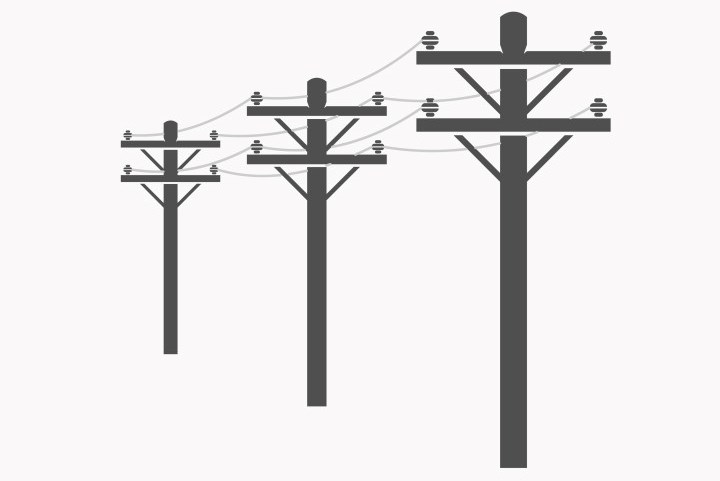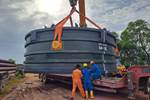ACMA champions finalization of Utility Pole Product Category Rule
Utility Pole PCR represents a culmination of efforts to provide standardized information on environmental impacts associated with composite pole manufacturing and use.

Source | ACMA
The American Composites Manufacturers Assn. (ACMA, Arlington, Va., U.S.) has announced the finalization of the Utility Pole Product Category Rule (PCR) in an effort to advance sustainable infrastructure solutions. Developed in collaboration with industry stakeholders, the Utility Pole PCR sets new standards for environmental transparency and performance evaluation within the utility pole manufacturing sector.
Published on Feb. 7, 2024, by PCR program operator Sustainable Minds (Cambridge, Mass., U.S.), the Utility Pole PCR represents a culmination of efforts spearheaded by ACMA and supported by a grant from ACMA’s Composites Growth Initiative (CGI) Fund. Over the course of several months, ACMA member companies specializing in composite utility poles, alongside representatives from wood, concrete and steel pole manufacturing sectors, collaborated in a consensus panel to develop the PCR.
The consensus panel, convened weekly starting in June 2023 to navigate various challenges, including establishing criteria for environmental impact assessment, defining service life expectations for electrical distribution lines and outlining protocols for manufacturers to provide reference service life for their products.
The Utility Pole PCR enables manufacturers to generate environmental product declarations (EPDs) for their utility poles, offering standardized information on environmental impacts associated with pole manufacturing and use. EPDs serve as crucial tools for infrastructure owners and designers, facilitating informed decision-making in selecting materials for projects. Federal regulations are increasingly mandating the use of EPDs for projects using federal funds, underscoring the significance of this development for the industry.
Key features of the Utility Pole PCR include its multi-material approach, incorporating insights from various pole manufacturing sectors and its emphasis on conveying use-phase environmental impacts and benefits in EPDs. Furthermore, the PCR was developed in alignment with the latest guidelines from the American Center for Life Cycle Assessment (ACLCA), underscoring its commitment to industry best practices.
“The finalization of the Utility Pole Product Category Rule represents a collaborative effort to enhance sustainability and transparency within the utility pole manufacturing sector,” president and CEO of ACMA, Cindy Squires, Esq., says. “We commend all stakeholders involved for their dedication to advancing environmentally responsible practices and look forward to the positive impact this PCR will have on infrastructure development.”
For more information about theUtility Pole PCR or other ACMA sustainability initiatives, contact John Sweitzer at jschweitzer@acmanet.org.
Related Content
-
Norco GFRP molds meet high-quality cast concrete beam production needs
A project with P&M successfully achieved manufacture of six 20-meter-long architectural beams for an R&D facility with near-seamless surfaces and on a tight production schedule.
-
Bio-based, fire-resistant composites become mainstream
Projects use Duplicor prepreg panels with highest Euroclass B fire performance without fire retardants for reduced weight, CO2 footprint in sustainable yet affordable roofs, high-rise façades and modular housing.
-
Gatorbar, NEG, ExxonMobil join forces for composite rebar
ExxonMobil’s Materia Proxima polyolefin thermoset resin systems and glass fiber from NEG-US is used to produce GatorBar, an industry-leading, glass fiber-reinforced composite rebar (GFRP).
















